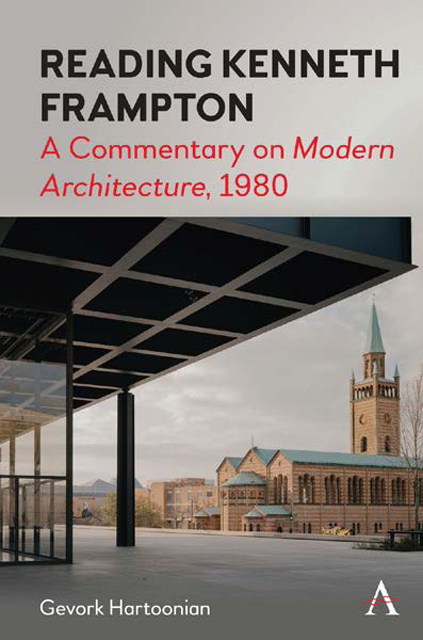Summary
Inflation: World Architecture
National literature is now a rather unmeaning term; the epoch of world literature is at hand, and everyone must strive to hasten its approach.
— J. W. Goethe (1827; original emphases)National one-sidedness and narrow- mindedness become more and more impossible, and from the numerous national and local literatures there arises a world literature.
— K. Marx, The Communist Manifesto (1848)As I sat to write the following pages, I received an email from Kenneth Frampton saying that he had completed the fifth edition of A Critical History, published late in 2020. In an earlier personal conversation, when asked how a fifth edition would relate to the critical concept as formulated in the introduction to the first edition of the book, his response was something like “It's gone!” Would he have given the same answer if the question was raised when the book's fourth edition was published? In any event, our interest here centers on the content of these editions and the fact that a departure from the book's first edition was already anticipated in the third, with the last chapter of part III titled “World Architecture and Reflective Practice.” Before taking up the notion of “world architecture,” it should be emphasized that the leading title of part III has not changed since the publication of the first edition of the book (1980). It reads “Critical Assessment and Extension into the Present,” followed by different cycles of periodization depending on which edition of the book you pick: from 1925–78 (first edition) to 1925–84 (second edition) to 1925–91 (third and fourth editions). Noteworthy is the double connotations of the phrase “extension into the present”: it could mean either that there will be future sequels to the book or/and that modern architecture has been an “incomplete” project since 1978, the decade roughly comprising the rise of the postmodern condition. Accordingly, only parts I and II of the book have remained focused on “modern architecture. In ”contrast, the subjects discussed in part III explicitly announce the end of the canon of the International Style architecture. Still, while the lead title of part III has remained the same, a new chapter has been added to the end of each subsequent edition of the book.
- Type
- Chapter
- Information
- Reading Kenneth FramptonA Commentary on 'Modern Architecture', 1980, pp. 199 - 206Publisher: Anthem PressPrint publication year: 2022



